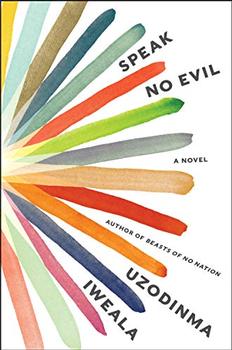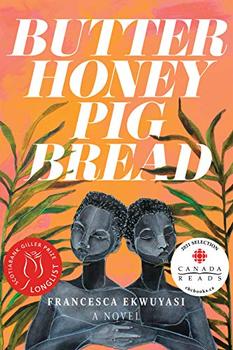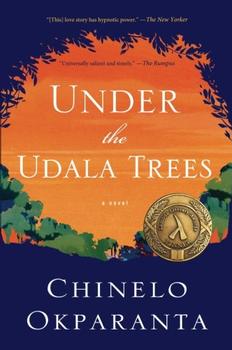Summary | Excerpt | Reviews | Beyond the book | Read-Alikes | Genres & Themes | Author Bio

In the long-anticipated novel from the author of the critically acclaimed Beasts of No Nation, a revelation shared between two privileged teenagers from very different backgrounds sets off a chain of events with devastating consequences.
On the surface, Niru leads a charmed life. Raised by two attentive parents in Washington, D.C., he's a top student and a track star at his prestigious private high school. Bound for Harvard in the fall, his prospects are bright. But Niru has a painful secret: he is queer - an abominable sin to his conservative Nigerian parents. No one knows except Meredith, his best friend, the daughter of prominent Washington insiders - and the one person who seems not to judge him.
When his father accidentally discovers Niru is gay, the fallout is brutal and swift. Coping with troubles of her own, however, Meredith finds that she has little left emotionally to offer him. As the two friends struggle to reconcile their desires against the expectations and institutions that seek to define them, they find themselves speeding toward a future more violent and senseless than they can imagine. Neither will escape unscathed.
In the tradition of Junot Diaz's The Brief Wondrous Life of Oscar Wao and Chimamanda Ngozi Adichie's Americanah, Speak No Evil explores what it means to be different in a fundamentally conformist society and how that difference plays out in our inner and outer struggles. It is a novel about the power of words and self-identification, about who gets to speak and who has the power to speak for other people. As heart-wrenching and timely as his breakout debut, Beasts of No Nation, Uzodinma Iweala's second novel cuts to the core of our humanity and leaves us reeling in its wake.
Speak No Evil leaves readers with many unanswered questions, but not because of any failure on the part of the narrative or its author. Instead, the questions that will remain with readers are deliberate and sobering - questions that will provoke contemplation or discussion, as readers ponder what might have been or, for some characters, what might still be possible...continued
Full Review
(458 words)
This review is available to non-members for a limited time. For full access,
become a member today.
(Reviewed by Norah Piehl).
 In Speak No Evil, Uzodinma Iweala's protagonist, Niru, says that his father "reminds us constantly that if he could walk ten miles to get sardines and tinned tomatoes for his family during the war, dodging low-flying Nigerian fighter plans that made a sport of strafing hungry refugees, then there is nothing he or we can't do." The war to which Niru's father refers, the reason why he emigrated from Nigeria to the United States, was the Nigerian Civil War of 1967 to 1970, also known as the Biafran War.
In Speak No Evil, Uzodinma Iweala's protagonist, Niru, says that his father "reminds us constantly that if he could walk ten miles to get sardines and tinned tomatoes for his family during the war, dodging low-flying Nigerian fighter plans that made a sport of strafing hungry refugees, then there is nothing he or we can't do." The war to which Niru's father refers, the reason why he emigrated from Nigeria to the United States, was the Nigerian Civil War of 1967 to 1970, also known as the Biafran War.
The conflict was precipitated when the state of Biafra, dominated by the Igbo but including other ethnic groups, declared its intention to secede. Tensions between the Igbo people and the Nigerian government had been ...
This "beyond the book" feature is available to non-members for a limited time. Join today for full access.

If you liked Speak No Evil, try these:

by Francesca Ekwuyasi
Published 2020
Spanning three continents, Butter Honey Pig Bread tells the interconnected stories of three Nigerian women: Kambirinachi and her twin daughters, Kehinde and Taiye.

by Chinelo Okparanta
Published 2016
Inspired by Nigeria's folktales and its war, Under the Udala Trees is a deeply searching, powerful debut about the dangers of living and loving openly.